Archives - Publications and Beyond
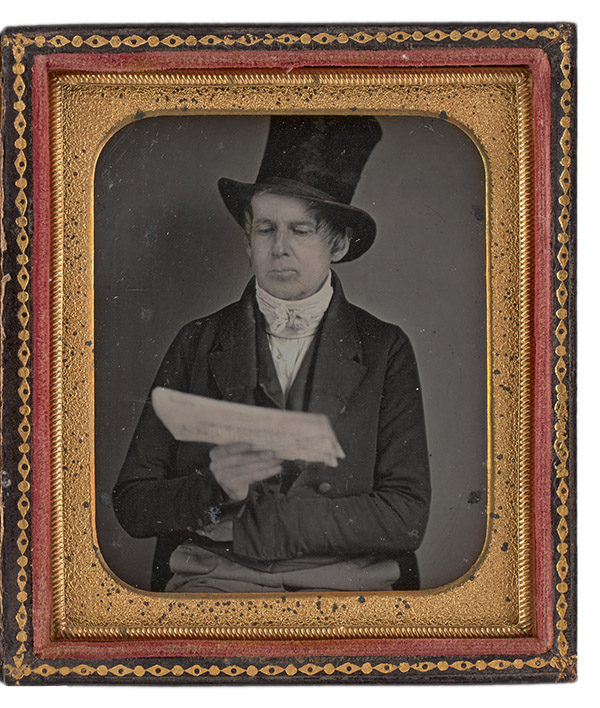 © Daguerréotype, 1855, CC0 Public Domain Designation, Chicago Art Institute.
© Daguerréotype, 1855, CC0 Public Domain Designation, Chicago Art Institute.This page presents the various supplemental material published in relation to recent academic works by CERI scholars in chronological order over the past quarter.
The supplemental material provided here—written interviews, podcasts, articles, online resources—offers a new focus on research and access to it through other formats than the work itself. All of this material is freely accessible online.
Beyond this page,
the full list of academic publications is available.
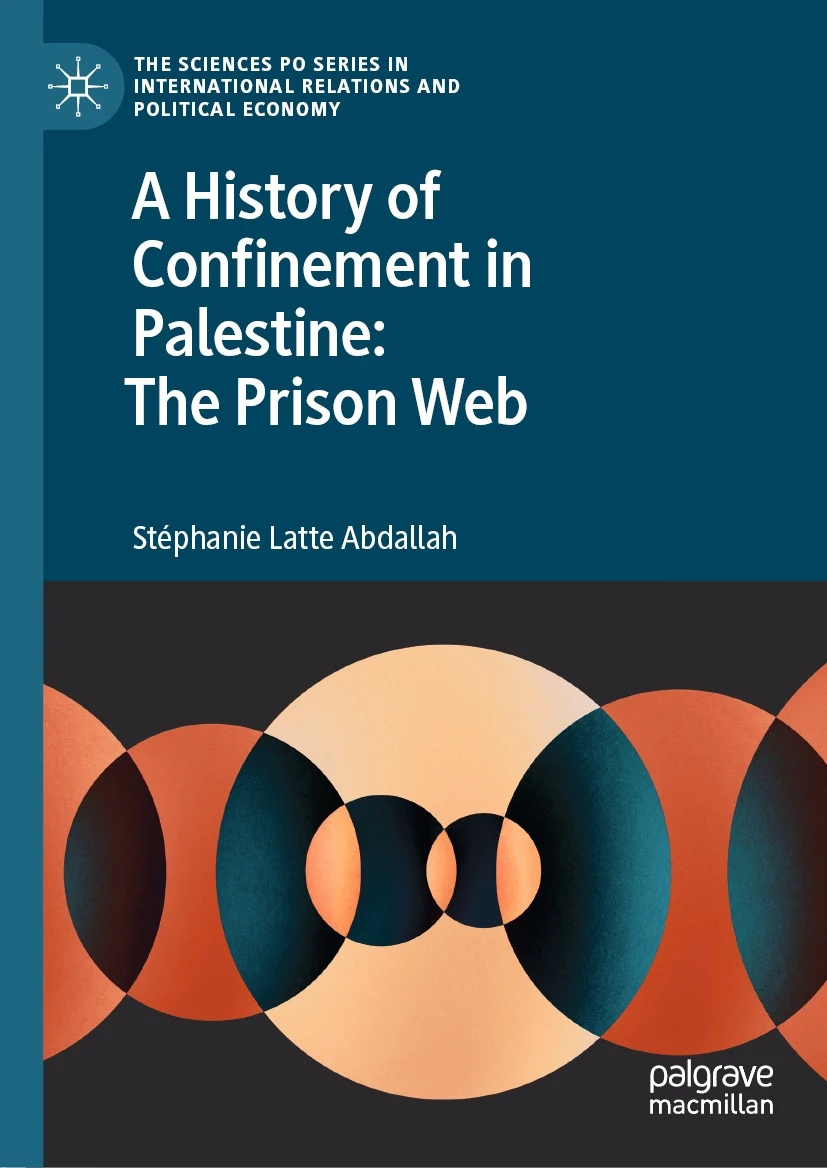
Palgrave Macmillan (The Sciences Po Series in International Relations and Political Economy), 2022, 416 p.
This book deals with the contemporary history of the imprisonment of Palestinians in Israeli prisons since 1967, and, since the 2000s, in Palestinian facilities. Widely shared in the Occupied Palestinian Territories, incarceration endurably marks personal and collective stories, and has spun a prison web, a kind of suspended detention. Approximately 40 percent of the male population has been to prison. This book shows how the judicial and prison practices applied to Palestinian residents of the OPT are major fractal devices of control contributing to the management of Israeli borders, and shape a specific bordering system based on a mobility regime. This history of confinement is that of the prison web, and of the in-between political, social, and personal spaces people weave between Inside and Outside prison. Based on in-depth ethnographic fieldwork, archives, and extensive institutional documentation, this political anthropology book deals with carceral citizenships and subjectivities; masculinities, femininities, gender relations, parentality, and intimacy. Woven like a web, this story is built around places, moments, people, and their testimonies.
Autour de la publication
Entretiens du CERI
29 September 2022
What the Prison Web Does to Palestinians
Interview with Stéphanie Latte Abdallah, by Miriam Périer
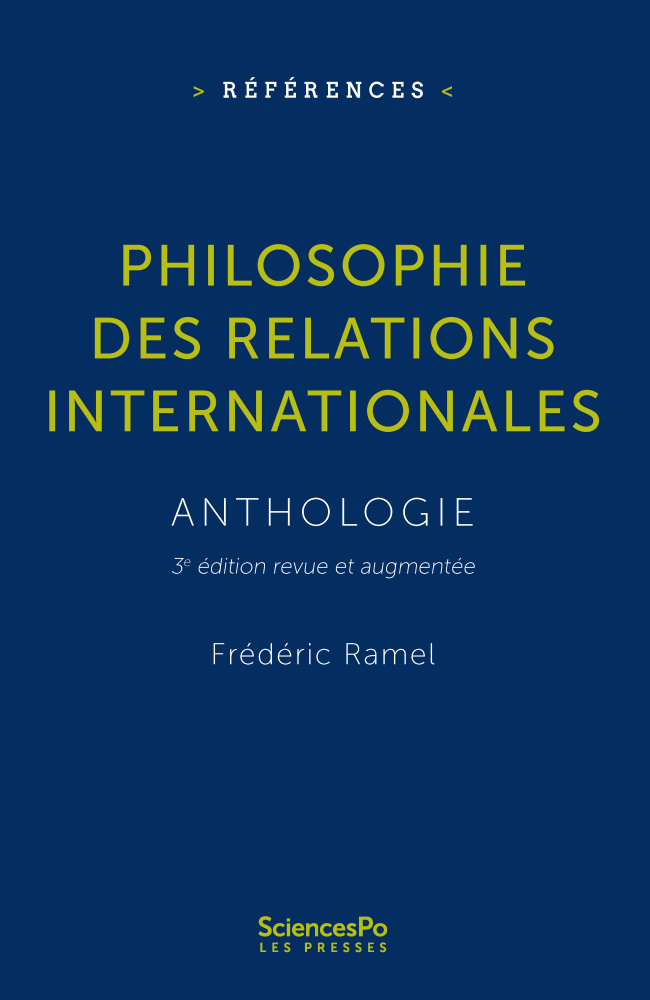
Paris, Presses de Sciences Po (Références), 3e édition revue et augmentée, 2022, 480 p.
Les liens entre la philosophie et les relations internationales peuvent paraître ténus. Pourtant, les deux disciplines se fréquentent de longue date. De Machiavel et Dante à Rousseau et Kant hier, de Rawls et Habermas à Walzer et Nussbaum aujourd'hui, la philosophie réfléchit à l'essence des relations entre les États et, par-delà les entités nationales, appréhende l’unité d’un monde composé d’une pluralité d’êtres vivants. Sans surprise, la guerre et les catastrophes sont son principal dilemme et l’éthique, son point d’ancrage. Existe-t-il des guerres répondant au critère de guerre juste ? Faut-il sauver des populations que l’on ne connaît pas au nom d’un critère moral ? Quelle est la meilleure organisation internationale ? Telles sont les questions que se pose la philosophie au XXIe siècle alors que les conflits font rage et que la crise écologique met à mal l’ordre mondial. Cette anthologie commentée et contextualisée relit et interroge les grands penseurs de la philosophie politique en pénétrant au coeur même de leur oeuvre.
Autour de la publication
Entretiens du CERI
28 September 2022
La philosophie peut-elle aider à comprendre les relations internationales ?
Entretien avec Frédéric Ramel, par Miriam Périer
Can Philosophy Help Us Understand International Relations?
Interview with Frédéric Ramel, by Miriam Périer
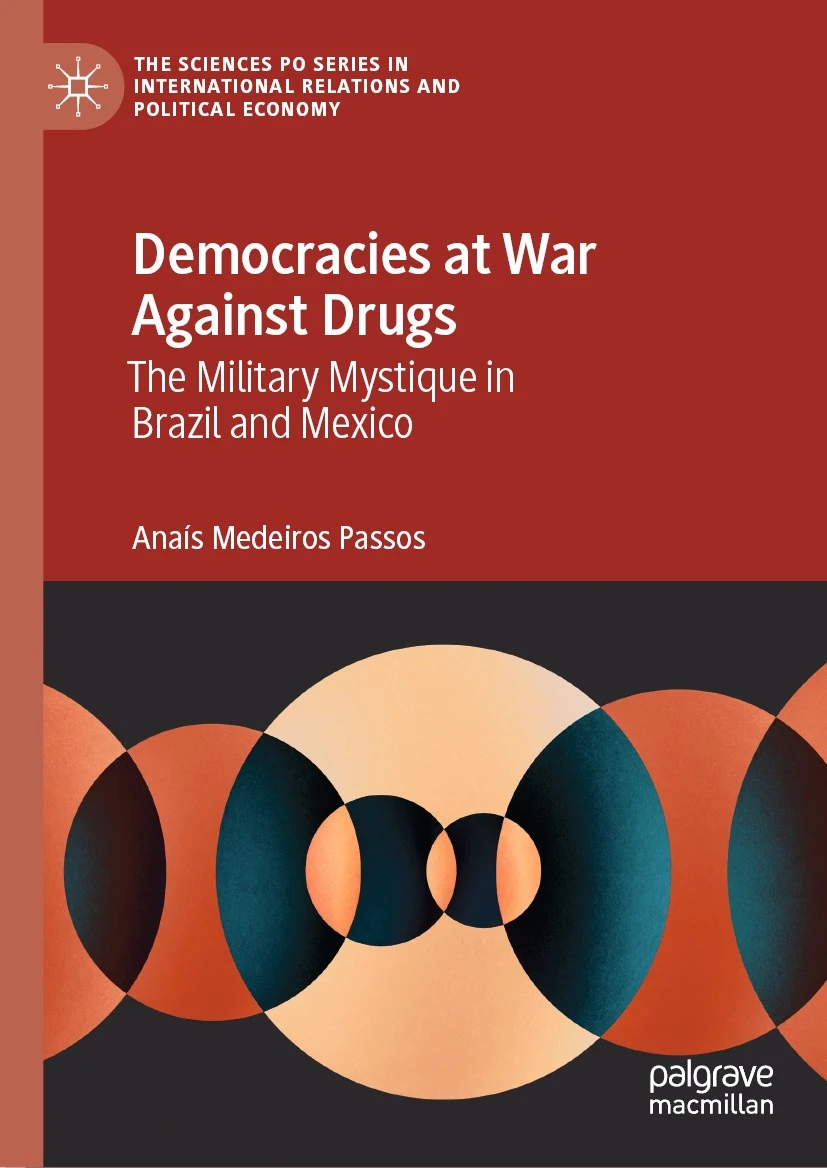
Anaís Medeiros Passos
Democracies at War Against Drugs. The Military Mystique in Brazil and Mexico
Palgrave Macmillan ( The Sciences Po Series in International Relations and Political Economy), 2022, 286 p.
This book provides an in-depth account of military operations against drug gangs and organizations in two of the biggest countries in Latin America: Brazil and Mexico. Recent studies on drug wars have detailed case studies on the war on drugs but do not focus on the role of the army in such policies. Publications that do drive attention to the military in such situations are usually from human rights organizations or the press and are therefore not scholarly works. There are therefore no recent academic books dealing with the role of the military in the fight against drugs in Latin America. This book aims to fill this gap. It also offers an empirical and theoretical examination of the issue of the role of the military (rather than the police) on national soil—the army being generally devoted to interventions abroad, and the police, to law enforcement on the national ground. The book is also the first work to look at high-level negotiations between military and civilian elites that define the conditions for the use of force during military operations. It provides a theoretically informed understanding of contemporary security politics in Brazil and Mexico.
Autour de la publication
Entretiens du CERI
12 September 2022
The Military and the Fight Against Drug Trafficking in Brazil and Mexico
Interview with Anaís Medeiros Passos, by Miriam Périer
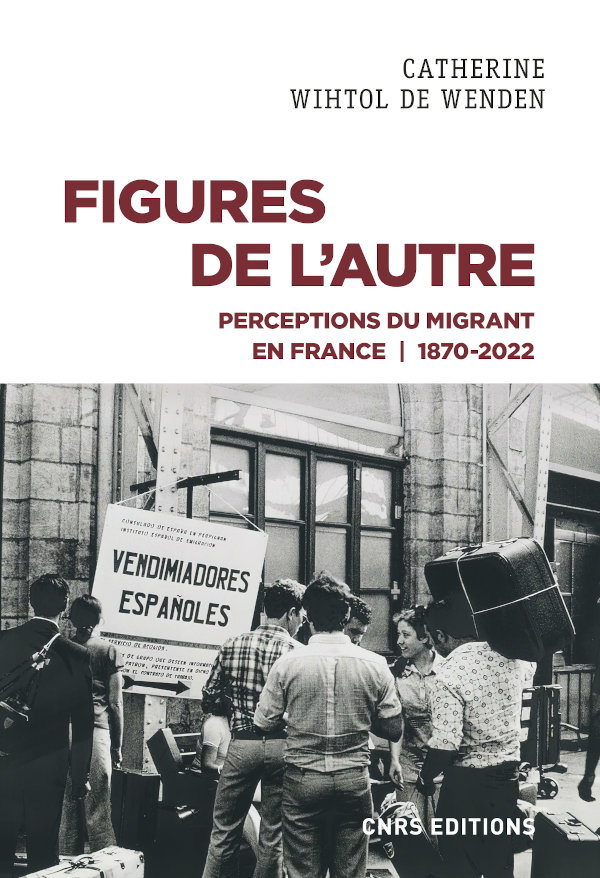
Figures de l’Autre. Perceptions du migrant en France 1870-2022
Paris, CNRS Éditions, 2022
La France, tôt confrontée à l’immigration, et marquée aussi par son passé colonial, a vu monter la prégnance de la figure de l’Autre dans la vie de tous les jours, comme au cœur du discours politique. Qu’il soit issu du regroupement familial, étudiant, travailleur qualifié ou non qualifié, travailleur temporaire, frontalier, réfugié, demandeur d’asile, sans papiers, le migrant incarne souvent une figure menaçante, toujours sujette aux mêmes stéréotypes. Au fil des diverses vagues d’immigration, les critères de l’altérité demeurent intacts : la religion (des Polonais « bien trop catholiques » dans la France laïque de la Troisième République aux musulmans « islamistes » ), la violence (du « couteau facile » des Italiens dans les années 1890 au terrorisme importé de Syrie), la concurrence déloyale sur le marché du travail (du « un million de chômeurs, c’est un million d’immigrés de trop ! » des années 1970 au plombier polonais). En se basant sur les articles de journaux, les proclamations politiques, les ouvrages de sciences sociales, mais aussi les romans et films, Catherine Wihtol de Wenden montre comment la mémoire collective concernant l’image de l’Autre s’est construite de 1870 à nos jours. Et propose quelques pistes pour en finir avec la figure péjorative du migrant : une citoyenneté inclusive, la lutte contre les discriminations, la construction d’une mémoire du vivre ensemble par la mise en musées.
Autour de la publication
Interview
02 September 2022
Figures de l'Autre. Entretien avec Catherine Wihtol de Wenden
Propos recueillis par Jean Bastien, Nonfiction
Entretiens du CERI
15 July 2022
Comment perçoit-on l'autre? Entretien avec Catherine Wihtol de Wenden
Entretien avec Catherine Wihtol de Wenden, par Miriam Périer
15 July 2022
How is the Other Perceived? Interview with Catherine Wihtol de Wenden
Interview with Catherine Wihtol de Wenden, by Miriam Périer
Extract
30 June 2022
Book extract available on Calameo
Podcast
30 June 2022
Présentation de l'ouvrage par Catherine de Wenden (FR)

Oxford University Press, 2022, 304 p.
Awakening to China's Rise provides the most comprehensive analysis to date of how Europe's major powers have responded to the re-emergence of China as a great power in world politics since the end of the Cold War. To do so, it puts forward a unique cross-regional comparison of how the major European powers (France, Germany and the United Kingdom) have confronted Chinese assertiveness both in the Asia-Pacific and in Europe. Firstly, it analyses their response to China's increasingly muscular regional posture in the Asia-Pacific through the development of diplomatic and security initiatives with partners in the region. Secondly, it delineates how they have confronted China's inroads into Europe, looking at the measures that they have taken to tackle Chinese investments in, and supply of, technologies in strategic sectors such as critical national infrastructures, dual-use technologies, and in the digital domain, including Huawei's 5G networks. A longstanding assumption in the IR literature has been that European foreign policies toward the People's Republic of China have been driven by a 'naïve' and self-interested focus on the economic opportunities presented by such a vast market, overlooking security considerations. This book challenges such common belief through a detailed examination of the policies of France, Germany and the United Kingdom from 1989 to the present. Its central argument is that, whereas this assessment aptly characterized the first two post-Cold War decades, Beijing's growing assertiveness after 2009 caused the three major European powers to awaken to China's rise. In the 2010s, heightened threat perceptions of China, coupled with increasingly competitive bilateral economic relations with the PRC, have gradually and cumulatively caused the hardening of their policy goals which, in turn, translated into the formulation of new policy instruments to confront such a challenge. To substantiate this argument, the book relies on a large body of previously undisclosed primary sources, including: 223 interviews conducted with senior officials in Europe (Berlin, Brussels, London, Paris), in the United States (Washington DC), and in Asia (Beijing, Shanghai, New Delhi, Seoul); declassified archival documents from France, the UK and Germany; leaked US diplomatic cables; and new data on European naval deployments.
Autour de la publication
Entretiens du CERI
26 August 2022
Europe and the Re-emergence of China as a Great Power.
Interview with Hugo Meijer, by Miriam Périer

La guerre par le droit. Les tribunaux Taliban en Afghanistan
Paris, CNRS Editions (Logiques du désordre), 2021, 384 p.
Et si les Taliban, aux capacités militaires et technologiques bien inférieures à celles des armées occidentales, avaient gagné la guerre par le droit ? Tandis que la coalition internationale a mis sur pied un système juridique inadapté et miné par la corruption, les Taliban ont installé des centaines de tribunaux dans les campagnes : en insistant sur le respect des procédures, l’impartialité des juges et l’application des verdicts, ce système de justice s’est imposé comme une des rares sources de prévisibilité dans le quotidien des Afghans. “Le tribunal des Taliban est pour tous, mais le tribunal du gouvernement est seulement pour les gens riches”, confie un habitant de la province du Wardak. De quelles manières les Taliban ont-ils gagné la confiance de la population ? Comment sont-ils parvenus à se mettre en position de réguler les rapports sociaux ? Et avec quelles conséquences pour la société afghane ? Nourrie par un travail de terrain au long cours dans différentes provinces en Afghanistan, cette enquête offre de nouvelles perspectives sur un pays en guerre depuis quatre décennies et propose une réflexion novatrice sur la place du droit dans les guerres civiles.
Autour de la publication
Interview
11 November 2021
Les Taliban ont-ils gagné la guerre par le droit ? Une conversation avec Adam Baczko
Interview with Adam Baczko, by Clément Fontanarava, Le Grand Continent
Video
30 July 2022
Les tribunaux Taliban en Afghanistan
Entretien avec Adam Baczko, par Alexander Ephrussi et Nina Khamsy, Les Entretiens de la chaire Yves Oltramare
12 October 2021
Le pouvoir des juges talibans
Entretien avec Adam Baczko sur la plateforme Politika.io, le politique à l'épreuve des sciences sociales
Podcast
20 September 2021
Le retour des Taliban et ses conséquences
Un débat avec Adam Backzo et Gilles Dorronsoro
Entretiens du CERI
16 September 2021
Gagner la guerre par le droit en Afghanistan? Entretien avec Adam Baczko
Entretien avec Adam Baczko, par Miriam Périer
10 September 2021
Winning war through Law in Afghanistan?
Interview with Adam Baczko, by Miriam Périer
Online article
8 September 2021
Afghanistan : la guerre par le droit des Taliban
Adam Baczko, AOC
News Media
25 September 2021
Taliban : une victoire par le droit ?
Débat avec Adam Baczko, par Sylvain Bourmeau, France Culture
12 September 2021
« Les talibans ont répondu à la demande de droit et d'État des Afghans »
Entretien avec Adam Baczko, par Sylvie Noël, RFI
2 September 2021
Afghanistan: comment les talibans avaient déjà gagné la guerre
Entretien avec Adam Baczko, par Olivia Gesbert, France Culture
21 June 2021
La justice selon les talibans
Recension de l'ouvrage par Jacques Hubert-Rodier, Les Echos
Resources
Afghanistan
Selection of books and online resources on Afghanistan

Des morts en guerre. Rétention des corps et figures du martyr en Palestine
Paris, Karthala (Recherches internationales), 2022
Depuis les années 1960, des défunts palestiniens disparaissent, sont sommairement enterrés dans les « cimetières des nombres » ou gardés à la morgue. Ces morts sont des fedayin, des martyrs – hommes ou, plus rarement, femmes – ayant conduit des attentats, ou des personnes tuées par erreur. Leur détention post-mortem et leur retour en terre relèvent d’une économie de l’inimitié, guerrière, et d’une extension sans fin d’une toile carcérale sur les Territoires palestiniens. Leur mobilité, les lieux d’ensevelissement, les traces qu’ils laissent dans l’espace public sont autant de marqueurs frontaliers. Cet ouvrage aborde les mobilisations politiques, celles de la société civile et des familles, pour retrouver ces dépouilles, à partir d’une enquête ethnographique, de documents d’archives et d’écrits de proches de ces défunts. Il analyse les transformations de la figure sociale et politique du martyr, mais aussi les relations personnelles, genrées et émotionnelles entretenues avec les morts. Il interroge la nécro-violence, la catégorie de la victime et la légitimité des affects dans une histoire conflictuelle inachevée.
Autour de la publication
Entretiens du CERI
17 June 2022
Des morts en guerre - entretien
Entretien avec Stéphanie Latte Abdallah, par Corinne Deloy
Extracts
13 June 2022
Par-delà la mort, le martyr palestinien reste une menace à neutraliser
Orient XXI
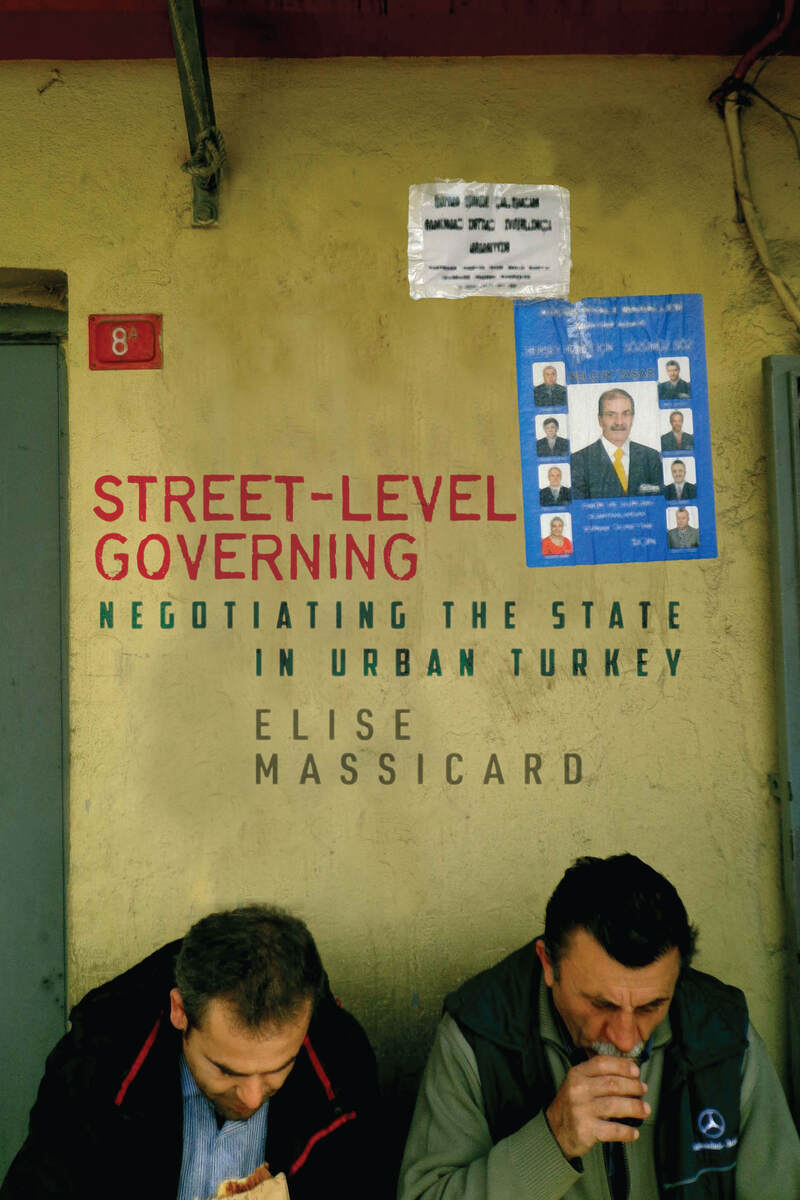
Street-Level Governing. Negotiating the State in Urban Turkey
Stanford, Stanford University Press (Stanford Studies in Middle Eastern and Islamic Societies and Cultures), 2022, 344 p.
Muhtars, the lowest level elected political position in Turkey, hold an ambiguously defined place within the administrative hierarchy. They are public officials, but local citizens do not always associate them with the central government. Street-Level Governing is the first book to investigate how muhtars carry out their role—not only what they are supposed to do, but how they actually operate—to provide an ethnographic study of the state as viewed from its margins. It starts from the premise that the seeming "margin" of state administration is not peripheral at all, but instructive as to how it functions. As Elise Massicard shows, muhtars exist at the intersection of everyday life and the exercise of power. Their position offers a personalized point of contact between citizens and state institutions, enabling close oversight of the citizenry, yet simultaneously projecting the sense of an accessible state to individuals. Challenging common theories of the state, Massicard outlines how the position of the muhtar throws into question an assumed dichotomy between domination and social resistance, and suggests that considerations of circumvention and accommodation are normal attributes of state-society functioning.
Autour de la publication
Entretiens du CERI
16 June 2022
The State from its Margins: A perspective from street level Turkey
Interview with Elise Massicard, by Miriam Périer
Podcast
20 December 2019
Keyman Podcast - Elise Massicard
Interview with Elise Massicard, Keyman Podcast
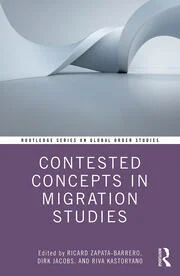
Ricard Zapata-Barrero, Dirk Jacobs, Riva Kastoryano (eds)
London, Routledge, 2021, 276 p.
This volume demonstrates that migration- and diversity-related concepts are always contested, and provides a reflexive critical awareness and better comprehension of the complex questions driving migration studies. The main purpose of this volume is to enhance conceptual thinking on migration studies. Examining interaction between concepts in the public domain, the academic disciplines, and the policy field, this book helps to avoid simplification or even trivialization of complex issues. Recent political events question established ways of looking at issues of migration and diversity and require a clarification or reinvention of political concepts to match the changing world. Applying five basic dimensions, each expert chapter contribution reflects on the role concepts play and demonstrates that concepts are ideology dependent, policy/politics dependent, context dependent, discipline dependent, and language dependent, and are influenced by how research is done, how policies are formulated, and how political debates extend and distort them. This book will be essential reading for students, scholars, and practitioners in migration studies/politics, migrant integration, citizenship studies, racism studies, and more broadly of key interest to sociology, political science, and political theory.
Autour de la publication
Entretiens du CERI
16 May 2022
Conceptual Thinking on Migration Studies
Interview with Riva Kastoryano, Ricard Zapatta-Barero & Dirk Jacobs, by Miriam Périer
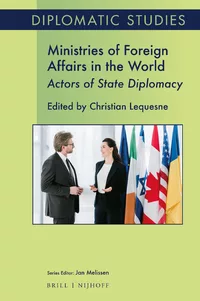
Christian Lequesne (ed.)
Ministries of Foreign Affairs in the World. Actors of State Diplomacy
Brill (Diplomatic Studies, Vol. 18), 2022.
Ministries of foreign affairs are prominent institutions at the heart of state diplomacy. Although they have lost their monopoly on the making of national foreign policies, they still are the operators of key practices associated with diplomacy: communication, representation and negotiation. Often studied in a monographic way, ministries of foreign affairs are undergoing an adaptation of their practices that require a global approach. This book fills a gap in the literature by approaching ministries of foreign affairs in a comparative and comprehensive way. The best international specialists in the field provide methodological and theoretical insights into how best to study institutions that remain crucial for the world diplomacy.
Autour de la publication
Entretiens du CERI
20 April 2022
Understanding Ministries of Foreign Affairs in the World
Interview with Christian Lequesne, by Miriam Périer
Podcast
10 May 2022
Ministries of Foreign Affairs in the World. Actors of State Diplomacy










